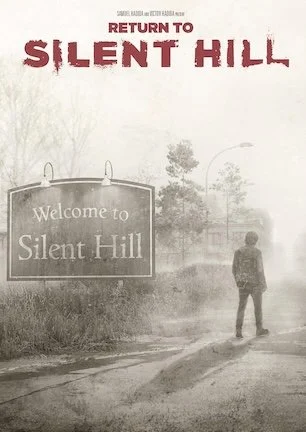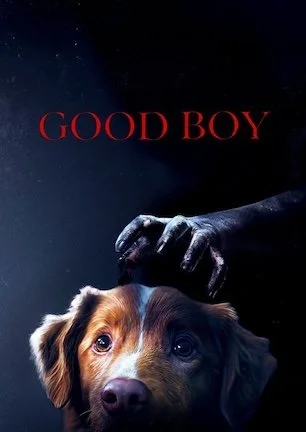Studio: Lionsgate
Director: Will Canon
Writer: Max La Bella, Will Canon, Doug Simon
Producer: James Wan, Lee Clay
Stars: Frank Grillo, Dustin Milligan, Cody Horn, Scott Mechlowicz, Megan Park, Aaron Yoo, Alex Goode, Maria Bello
Review Score:
Summary:
Paranormal researchers awaken a demon when they investigate a house haunted by gruesome occult murders.
Review:
One particularly frightening way to curse a horror film is to have Harvey or Bob Weinstein’s name appear in the executive producer credits. For reasons we will likely never know and will certainly never understand, the duo’s involvement can ring a death knell signaling that the chiller in question is doomed to have a completely confounding rollout, if it even releases at all.
Just ask French filmmakers Julien Maury and Alexandre Bustillo, whose 2011 movie “Livide” (review here) was scooped up by Dimension Films only to be condemned indefinitely to U.S. distribution limbo. Or try using less than two hands to count the number of times “Amityville: The Awakening” shifted release dates between when it was first announced in 2014 and unceremoniously dumped internationally in 2017.
Take “Demonic” too. Originally shot in 2013, “Demonic” went straight to DVD in some countries in the summer of 2015. Then it backpedaled a bit to make a brief festival run in the fall before hitting home video everywhere else overseas. Meanwhile, the United States confusingly had to wait until 2017, when “Demonic” suddenly appeared on Spike TV in July before arriving almost unannounced on Netflix in August, both of which predate the film’s home video debut in October. That is about as nonsensical a release plan as any inept distributor can concoct.
It’s not as if Dimension was sitting on a moneymaking masterpiece. But “Demonic” isn’t any worse a commodity to have on hand than any other milquetoast supernatural thriller catering to mainstream masses, like “The Bye Bye Man” (review here) or “Rings” (review here). What the “sit on it” strategy gains anyone is a mystery. What is lost is audience confidence as well as the movie itself, disappearing down a hole of “whatever happened to?” curiosity before being forgotten entirely.
Which is pretty much what happened to “Demonic.” Even with two notable names in front of the camera (Frank Grillo and Maria Bello) and a big one behind it (horror hitmaker James Wan in a producer role), “Demonic” capitalized on neither its talent nor its timeliness. The feeble fright flick instead became its own worst enemy in terms of acquiring an audience, although it gets considerable help from a drab script and pedestrian production, both of which are serviceable yet unremarkable.
An occult ritual gone awry resulted in one woman killing herself and four others inside an old Louisiana mansion in 1988. History is poised to repeat itself 25 years later when six collegiate paranormal researchers venture into the haunted house to recreate the satanic séance. What could go wrong?
John has been traumatized by recurring visions of his dead mother Sara, the sole survivor of the original slaughter. Assurances from his girlfriend Michelle claim John can get closure if he accompanies the team on this trip. Unfortunately, Michelle’s prickly ex-boyfriend Bryan is in charge of the project, making it all the more uncomfortable for John. But John agrees to participate anyway, so off everyone goes, along with three other people whose names don’t matter (one of these actors is even left out of the title cards) to make ill-advised contact with the other side.
It’s a straightforward premise, yet “Demonic” complicates things by playing out events in parallel timelines. With the three red shirts already dead when the film starts, Frank Grillo’s detective and Maria Bello’s police psychologist are brought in to investigate the crime scene and interview John in hopes of uncovering what really happened. John’s ongoing story thus unfolds in present and near-past arcs.
The dead giveaway in presenting two pathways like this is that current events clearly have one hidden card left to play regarding how the previous plotline concludes. Such a conceit hasn’t been clever since “The Usual Suspects.” Contemporary viewers are conditioned to see telegraphed twists like this one coming ten miles away. “Demonic’s” supposed surprise is disappointingly no exception. Not to mention it makes little sense in retrospect (would anyone like to explain why a certain someone kills a cop and convenience store clerk if s/he isn’t the person initially presumed to be?).
The preceding synopsis also has all the markings of a “found footage” film setup, with “Demonic” actually using the format for several sequences. Like concurrent plotlines, being noncommittal to any one storytelling technique turns the movie into an unnecessarily messy narrative of disparate styles.
Michael Fimognari, who collaborates frequently with filmmaker Mike Flanagan, is one of the finest cinematographers working in horror today. Yet Fimognari bafflingly chooses to film “Demonic” in a distracting handheld style, even when not in first-person mode, for an outdated “NYPD Blue” anxiousness not at all in keeping with the tone.
Current timeline versus past timeline. First-person footage versus traditional filming. “Demonic” fights a perpetual civil war over how to tell its tale, and none of its approaches fit smoothly with the others.
Scares, such as they are, are of the routinely rote variety, e.g. a wall-mounted cross spinning upside down or flashlights sweeping over creepy dolls while a music box tinkles in the background. Getting the picture? “Demonic” isn’t bad so much as it is simply bland and artistically misconceived.
It could be that this review answers my own questions regarding why the Weinsteins left “Demonic” to languish without much of a care for its final fate. Cocooned in mediocrity from head to toe and back again, there isn’t anything distinguishing “Demonic” from the countless other films it is practically identical to. Undoubtedly, this is one time that the mighty Mr. Wan forgot to take off his glove before applying his usual Midas touch.
Review Score: 45






While the 110-minute runtime could use a trim to maintain more energy, “Redux Redux” is an easy recommend for anyone who enjoys low-key sci-fi.